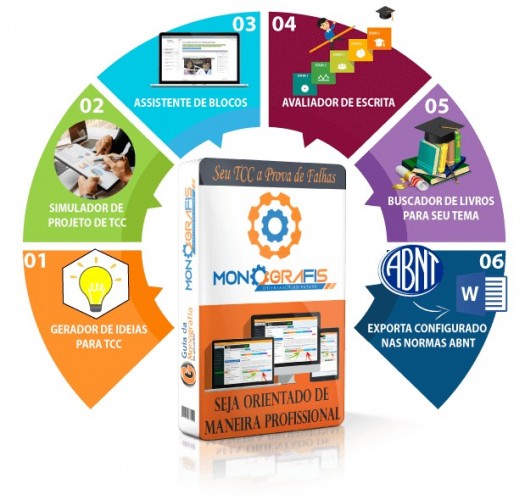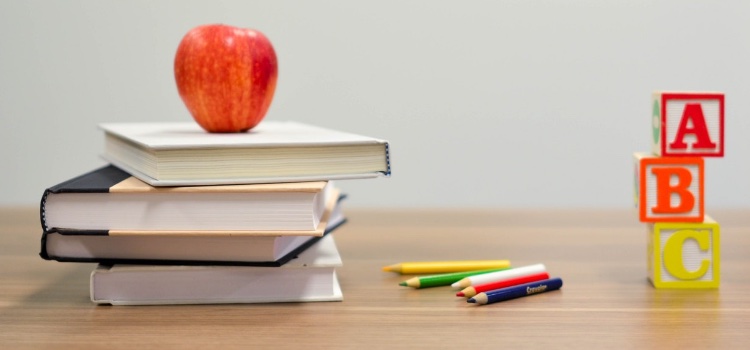In this article we will provide a complete list of suggestions for Capstone and Pedagogy Thesiss. The list also presents suggestions for other academic work such as scientific articles. I hope you make good use of this list of suggestions and topics for academic work in education in Pedagogy.
The decision on the subject of Pedagogy is the most significant choice that the academic needs to make for a good development of the Thesis and Capstone, which ends up generating a lot of distress and indecision.
Among the numerous options for Thesis and Capstone Project Ideas, a good choice will provide the student to create his Research Paper with more fluidity and less discouragement.
Hire someone to do your Academic Pedagogy Work
Do you know Studybay? This is a website where you can designate graduates and teachers to prepare your academic work of all kinds such as scientific article, essay, Research Paper and Pedagogy or other training. You can put an end to all the hassle of doing academic Pedagogy work with almost no time.
With Studybay you can create Abstracts, Research Project, Translate texts, Questions and many others. If it’s of interest to you, you can also generate money by writing to the thousands who visit StudyBay every day, including its international websites.
Just access the button below and make a budget with the type of work you want to do. The website teachers can also help you with a theme. It works as a website to hire freelancers, you receive proposals at different prices and you are fully insured by the company StudyBay, a company present in all the globe that arrived in Brazil a few years ago to help you in the work of Pedagogy.

Advisor Research Papers - Making your Research Paper Faster
If you do not want to pay anyone to do your Research Paper, another honest suggestion is to use a tool that will help you in creating your academic work. Such a tool helps in the creation of your Capstone taking all the hard work and delivering it the way the bank wants to receive.
We recommend the tool called Monografis Orientador Capstone, it is a super complete tool able to help you do your Capstone, Research Paper or any other academic work in a simple and fast way, with the objective of getting the highest grade in the course.
Dissertations, theses and many other works can be done faster with the help of software that helps you with Project Ideas for Capstone, simulates the Capstone project on the computer, assistance in creating blocks, evaluates your writing, searches for books and sources for your theme and exports every project configured in ABNT standards.

Tips for Academic Pedagogy Papers
Here are some tips for preparing your academic work on Pedagogy, perfect tips for your Thesis or Capstone:
- If you work or know where you want to work, look for topics related to your area of activity. You need to have compatibility with the theme.
- See also in the research source, check if there is enough reference material for this theme of (Coursework | Research Paper}.
- Consult your Teacher - It is important that the tutor mentor agrees with the theme.
The tips below can assist in creating a Capstone:
- Don't even think about using the first person in the text;
- positive and write only what is necessary, reducing adjectives and adverbs;
- Be careful not to repeat the words several times, look for alternatives;
- Do not use sinuous ideas: the text must be clear;
- Do not omit important data: present it whenever necessary.
The Courses and Books Below can also help you learn more about the creation of Academic Papers, Capstone and Pedagogy Research Papers:
Academic Workbooks for Pedagogy
Academic Works Courses for Pedagogy

List of Pedagogy Capstone and Theses Project Ideas
See below some Project Ideas for doing academic work such as Thesis and Pedagogy Capstone:
- Affectivity in pedagogical practice and teacher training
- Literacy from the perspective of literacy
- The common national curriculum basis for early childhood education
- The career of the teacher in the 21st century
- Discipline in early childhood education
- Environmental education in the early grades
- Current education
- Education in the digital age
- Continuing education of the teacher of early childhood education in art
- Teacher training
- Teacher training for inclusion of autistic students
- The role of the pedagogical coordinator
- School management
- The history of daycare centers
- The importance of affectivity in the teacher-student relationship
- The importance of bringing parents and school together
- The importance of school without party for social development
- The importance of the family at school
- The importance of music in early childhood education
- The importance of music in learning
- The importance of play in schools
- The importance of working on Ethnic-Racial relations in elementary school
- The importance of a professional trained in monitoring children with special needs
- The importance of affection in the classroom.
- The importance of playing in early childhood education
- The importance of internship in teacher training
- The importance of internship in teacher training
- The importance of supervised internship in teacher training
- The importance of psychopedagogue in the school space
- The importance of school reinforcement since primary education
- The importance of sports in education
- The importance of exercises for memorization in logical disciplines
- Indiscipline in early childhood education
- The influence of affectivity on youth and adult learning
- The influence of affectivity in education
- The influence of morning coffee on students' learning in the morning
- The influence of Escola sem Partido on the democratization of public education.
- Influence on teaching using playfulness in child education
- The insertion of the child in the daycare
- The insertion of the English language in preschool
- The insertion of the pedagogue in public and private organizations
- Interdisciplinarity in the early grades
- The internet as a tool in research practice in public schools.
- Playfulness in Early Childhood Education (0 to 5 years)
- Music in early childhood education
- Music in early childhood education: children's achievements from music.
- The organization of songs in the routine of early childhood education
- The organization of spaces in early childhood education
- Family participation
- Business pedagogy
- Pedagogy in the hospital environment
- The permanent need to value art and creativity at school
- The educational perspective of daycare centers' physical space
- Recycling as a playful element in child education
- The relationship between Christianity and education
- Routine in early childhood education
- Routine in the daily routine of early childhood education: what do children indicate?
- The systematization of the textbook
- Asperger's Syndrome
- Technology in the education of hearing impaired students
- Shyness in the school context: a look at this characteristic of human personality at school.
- The use of the computer lab as a pedagogical space
- Reception of babies in daycare
- Adapting the school to inclusive education
- Adaptation of students in inclusive education
- Adapting babies to school
- Adaptation of hyperactive children
- Adaptation of children to daycare
- Adaptation of teaching for different ages
- Adapting teaching to inclusive education
- Affectivity in early childhood education
- Affectivity in teacher and student learning
- Literacy of students with learning difficulties
- Literacy and literacy in the early grades
- Literacy in pounds
- Application of children's literature at home
- Application of children's literature in the classroom
- The contributions of psychopedagogy in EJA
- The contributions of a toy library to children's learning
- Individual differences and the classroom
- Text review strategies in the early years of elementary school.
- The influences of emotion in the teaching-learning process
- Multiple languages in youth and adult literacy
- The pedagogical practices of jesus
- Deaf students' technologies and education
- Daycare evaluation
- Evaluation versus correction: giving a new look to evaluative practices.
- Benefits provided by reading in childhood
- Hospital playroom
- Search for knowledge in Brazil
- Citizenship at school
- How to deal with bullying in public schools
- How can we create games that include students with and without autism within a regular class?
- Knowledge covered in inclusive education
- Building citizenship in the education of youth and adults: the challenges of political education in EJA.
- Storytelling
- Storytelling in early childhood education
- Contribution of fairy tales to pedagogical practices
- Circus children: a proposal for inclusion
- Children with autism in schools
- Children with writing difficulties
- Children with dyslexia
- Definition of inclusive education
- Definition of EJA
- Definition of children's literature
- Ethical development in early childhood education
- Pedagogical Design
- Learning difficulties of hyperactive children
- Learning difficulties in reading and writing
- Rights of the LGBT population at school
- Discipline, limit in the right measure
- Cultural diversity in schools
- Cultural diversification in learning
- Teaching with women deprived of their liberty
- Shared teaching
- Distance education for teacher training
- Education as a sustainability process
- Home education
- Education in prisons
- Inclusive education
- Inclusive education: teacher education and its inclusive practices
- Early childhood education: the contribution of play to the child's socialization process in daycare
- Education in the field: a new way of thinking about the student-teacher relationship.
- Teaching through children's books
- Science teaching in the early grades
- Mathematics teaching in early childhood education
- Teaching of elderly students
- Teaching and learning mathematics in early childhood education
- Teaching for young people and adults
- Montessori School
- Public schools: space for reproduction or transformation?
- School, citizen formation and the role of the pedagogical coordinator
- Case study of a student with learning difficulties
- Language study in preschool
- School dropout
- School dropout in high school
- Lack of attention: a teaching understanding.
- Family-school: a cooperative or conflictive relationship?
- Children of same-sex couples in schools
- Fluency in oral reading in literacy
- Teacher training for field education
- Teacher education in higher education
- Teacher training
- Teacher training for EJA
- School failure
- School management
- School management: space for participation
- School gymkhana in the teaching-learning process
- Inclusion of the autistic child in the classroom
- Inclusion of autistic children in basic education
- Digital inclusion in youth and adult education
- Digital inclusion in schools
- Inclusion is preparation at school
- Inclusion, Intellectual disability
- Indiscipline in Education: causes and consequences
- Informatics as a teaching tool
- Multiple intelligences in the learning process
- Interdisciplinarity
- Digital games in the learning process
- Games and games
- Games and play in early childhood education
- Reading and Writing as a Pleasure Source
- Reading in early childhood education
- Children's literature
- More education: integral education or school reinforcement?
- Conflict mediation in the EJA classroom
- Improvements in the education system
- Learning movements: a classroom organized in groups.
- Women participating in EJA
- Music in early childhood education
- Neuroscience in education
- Playing in early childhood education 3 to 4 years
- The tutelary council in schools
- The playful in the learning process
- The role of the pedagogical coordinator
- The role of the pedagogue in organizations
- The role of the teacher in inclusive education
- The Role of Educational Psychopedagogists
- The role of the teacher in combating sexist education
- The power of myth and superheroes in education
- The literacy process in Libras
- The process of forming consciousness
- The reward system as an incentive to study
- ADHD and its implications for the school environment
- Theater within schools
- The use of television in early childhood education
- The use of a toy library
- The use of fables in early childhood education
- Chess as a way of teaching mathematics
- Digital literacy workshop
- Literacy challenges in the early grades
- The challenges of combating bullying
- The challenges of maternal education
- Other languages in basic education
- Pedagogy in non-school environments
- Business Pedagogy
- Holistic pedagogy a new look at education
- Hospital Pedagogy
- Libertarian pedagogy
- People with disabilities in higher education: permanence and effectiveness
- Early childhood, preoperative period
- Social programs that promote knowledge in adulthood
- Pedagogical practices in daycare: affectivity as an axis
- Psychomotricity
- Psychomotricity and early childhood education
- Children's advertising
- Gender issues at school and the influence of society
- Recycling in early childhood education
- Recreation: children's space and time for expression.
- Reduce bullying in schools through pedagogical practices
- National curriculum framework for early childhood education
- Relationship between guardianship council and school
- Relationship between teacher and student
- Relationship between teachers and students
- Teacher-student relationship: the importance of affectivity
- Gender relations and sexuality
- Gender relations in schools
- Conversation wheel in early childhood education
- Sexuality in Early Childhood Education
- Brain and computational system: possible connections
- Situation of inclusive education in Brazil
- Theater inside the school
- Assistive technology in inclusion
- Becoming a literacy teacher: knowledge necessary for teaching.
- Child and youth work
- Transition from Early Childhood Education to Elementary Education
- Attention deficit hyperactivity disorder
- Use of the internet in teaching practices
- Use of television in children's education
- Use of applications in the literacy process
- Violence in schools
- Experiences in school and non-school education: practices inspired by dialogue.

Videos with Tips and Pedagogy Project Ideas for your Thesis and Capstone
Structure Rules for Pedagogy Course
The Pedagogy Capstone structure must follow the following parameters:
- External part
- Cover (Required)
- Spine (Optional)
- Pre-Textual Elements
- Cover Page (Required)
- Errata (Optional)
- Approval Sheet (Required)
- Dedication (Optional)
- Agradecimentos (Opcional)
- Epígrafe (Opcional)
- Resumo na língua vernácula/nativa (Obrigatório)
- Foreign Language Summary (Required)
- Lista de Ilustrações (Opcional)
- List of Tables (Optional)
- List of Abbreviations and Acronyms (Optional)
- Symbol List (Optional)
- Summary (Required)
- Textual Elements
- Introduction (Required)
- Desenvolvimento (Obrigatório)
- Completion (Required)
- Post-Textual Elements
- Referências (Obrigatório)
- Glossary (Optional)
- Appendix (s) (Optional)



![240 Temas para TCC e Monografia de Pedagogia Psicopedagogia e Psicomotricidade em Ação - Pedagogia do Movimento [dvd]](https://m.media-amazon.com/images/I/41EAhe6h+0L._SL500_.jpg)












